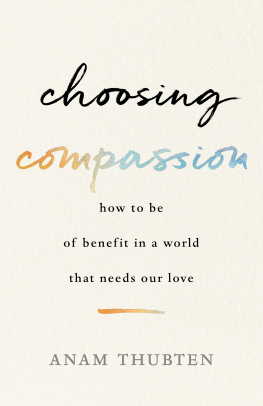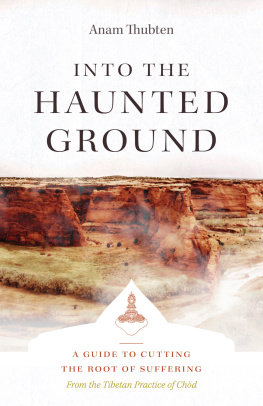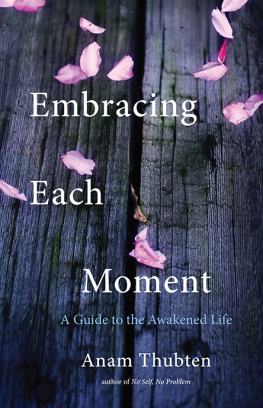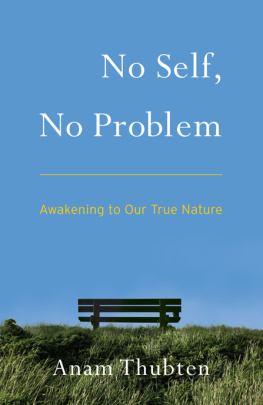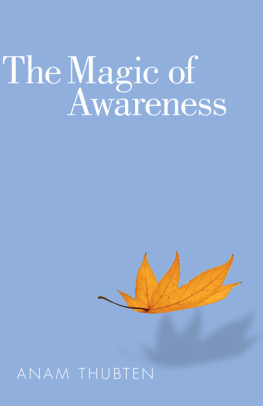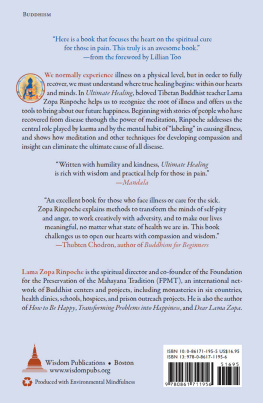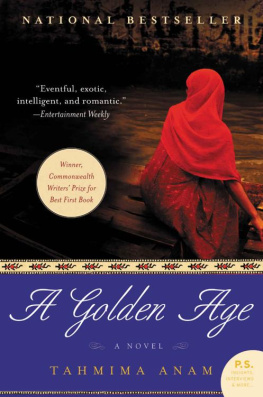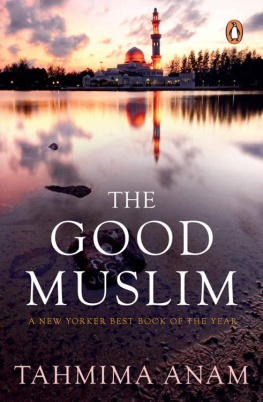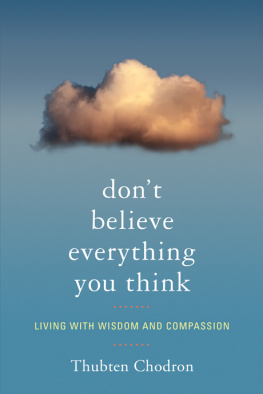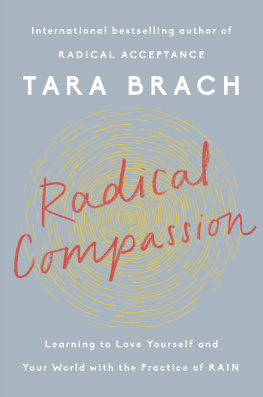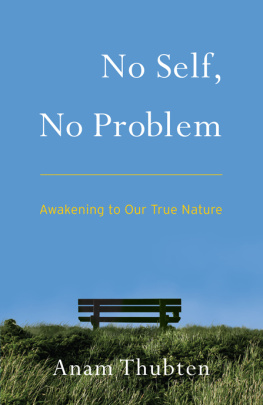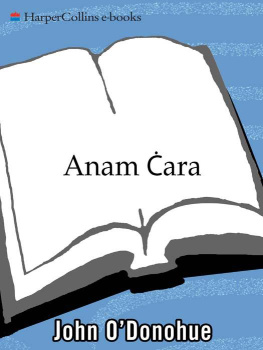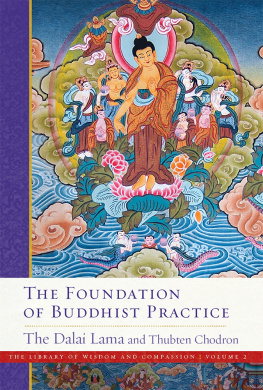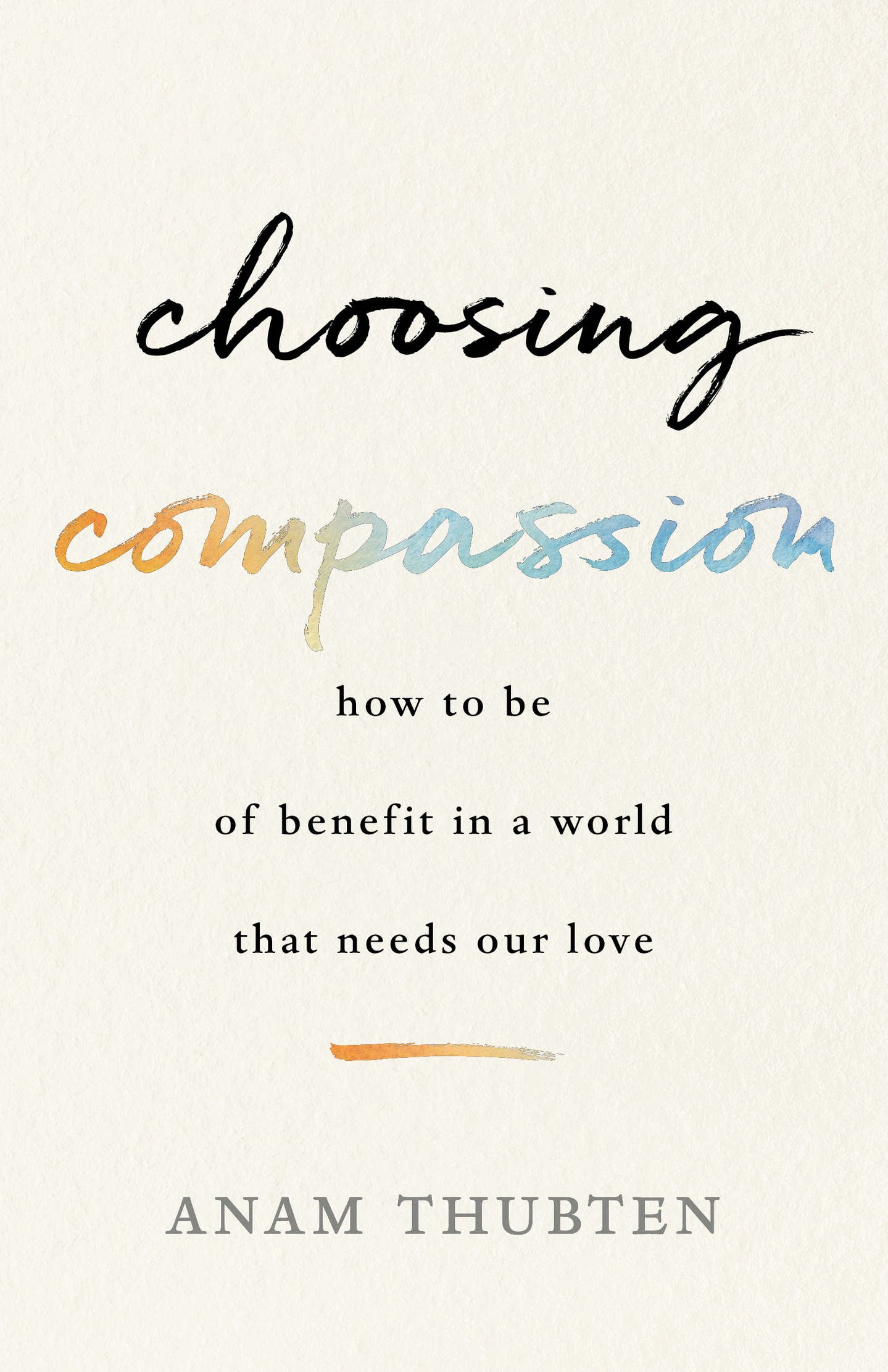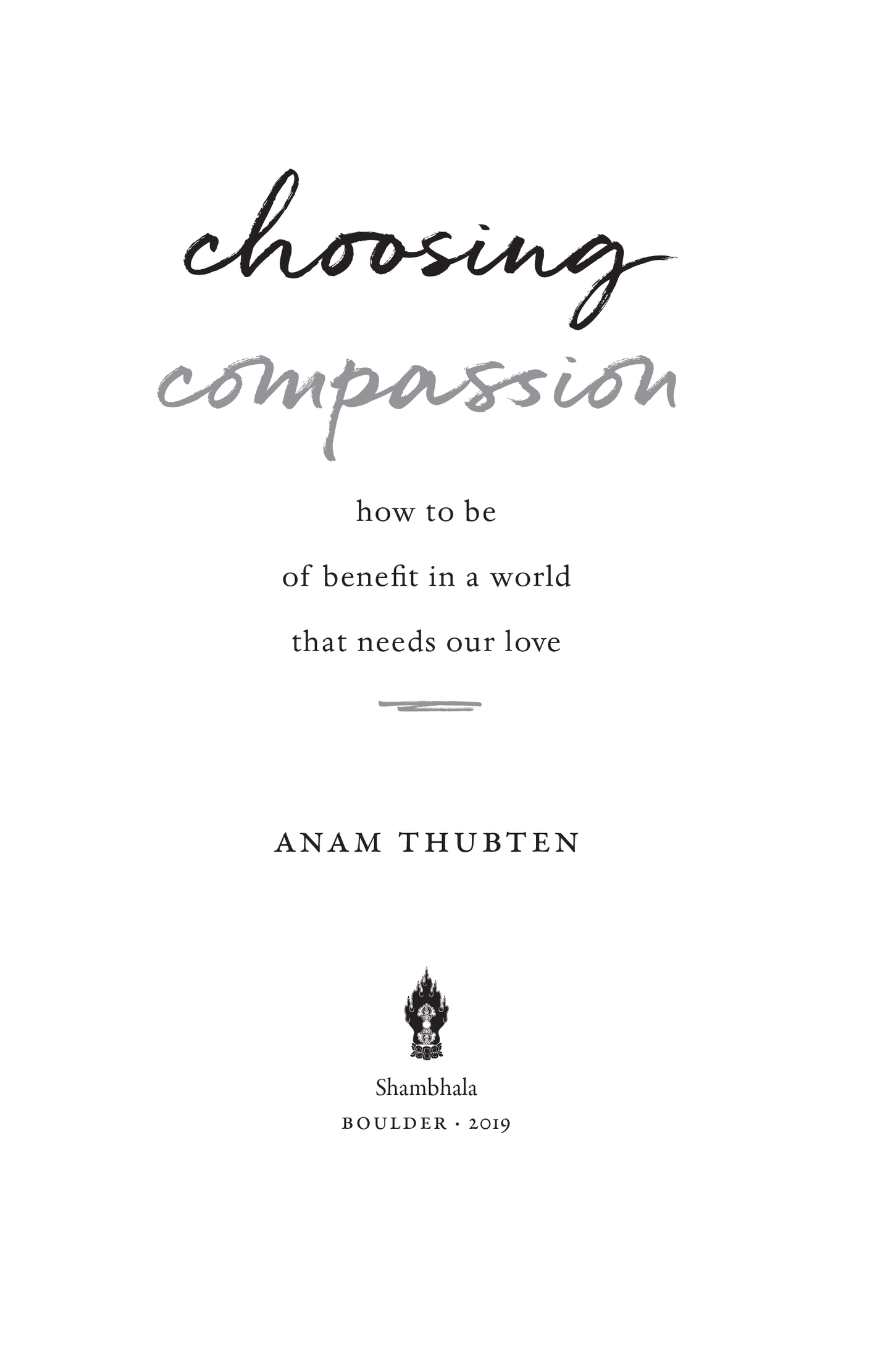Choosing Compassion: How to Be of Benefit in a World That Needs Our Love
Landmarks
Print Page List
also by Anam Thubten
Embracing Each Moment:
A Guide to the Awakened Life
The Magic of Awareness
No Self, No Problem:
Awakening to Our True Nature
Shambhala Publications, Inc.
4720 Walnut Street
Boulder, Colorado 80301
www.shambhala.com
2019 by Anam Thubten
All rights reserved. No part of this book may be reproduced in any form or by any means, electronic or mechanical, including photocopying, recording, or by any information storage and retrieval system, without permission in writing from the publisher.
Ebook design adapted from printed book design by Kate Huber-Parker
Cover art by Getty Images
Cover design by Graciela Galup
Library of Congress Cataloging-in-Publication Data
Names: Thubten, Anam, author.
Title: Choosing compassion: how to be of benefit in a world that needs our love / Anam Thubten.
Description: First edition. | Shambhala: Shambhala, 2019.
Identifiers: LCCN 2018049214 | ISBN 9781611807271 (pbk.: alk. paper)
eISBN 9780834842229
Subjects: LCSH : CompassionReligious aspectsBuddhism.
Classification: LCC BQ 4360 . T 48 2019 | DDC 294.3/5677dc23
LC record available at https://lccn.loc.gov/2018049214
v5.4
a
contents
preface
Many of us have a strong habit of getting bogged down by the exterior aspects of life: politics, news, work, relationships, and finances to name a few. This can cause us to feel that were stuck with a life that is devoid of meaning and joy. Not only that, but this can bind us to a limiting version of reality, and we suffer as its consequence. The interior world of mind and heart are neglected when our whole focus is given to external values. Therefore, spiritual teachings often invite us to pause and turn our attention inward to cultivate the wealth of wisdom, love, and compassion. My hope is that Choosing Compassion will do this very job for whomever comes across it.
Books have their own life and mission just like people. They go to places where an author has never been and reach people an author has never met, hopefully giving them the inspiration they might be looking for. This is not my first book. During my lecture tours, now and then a new face will show up with one of my books filled with marks, and the person will tell me it helped them. Knowing that my work is benefiting someone out there has inspired me to teach and write more. My books also have been wonderful bridges between many people around the world and me. As long as my books are helping people, it feels worthwhile to continue to write them. As individuals, we constantly change, along with our culture. New ideas and refreshing language that address our problems and solutions are very much needed.
We live in a very interesting time in the history of humankind, due to rapid changes on all levels. The systems that used to make sense are collapsing. We are anxious about a very uncertain future as ecological crises hit us stronger and stronger each year. Yet, there is a sanctuary where we can take refuge. It is not out there in the world; it is in the love and wisdom that can be found within our heart. And so, in addition to, and perhaps because of, the challenges that are being presented to us collectively and individually, this is also a potent time for our inner growth. There is usually an upside to the experiences we go through in this life, regardless of whether we can see this upside immediately or not.
Choosing Compassion is based on my talks given at our temple in Point Richmond, California: a quaint historical town with magical sunsets and views of the famous Golden Gate Bridge that can get anyone drunk with bliss. Almost every other week, people come to the temple and we meditate together as a community, followed by a talk. Much of the audience already has a strong foundation in various wisdom traditions. In many ways, this book doesnt just belong to me; it also belongs to all these wonderful people. It only came into being because they inspired me to teach.
Let me take this as an opportunity to express my gratitude to everyone who worked to make this book available. It has taken the efforts of many, who have helped by recording talks, transcribing them, editing them, and more. I am especially grateful to Sharon Roe, who continuously helps my books take form thanks to her contagious enthusiasm and sharp editing.
1
circle of love
It is important to bring hearts full of compassion and love into our daily spiritual practice. Without that our practice is incomplete. There is a beautiful phrase designed to help us open our hearts: May all beings be free from suffering and the cause of suffering. Tibetans have been reciting this phrase for centuries. It could be turned into a lyric for an international anthem, but were not yet there. The world needs more unity and mutual understanding before were ready to create such an anthem that carries this good message. While invoking this prayer we can imagine everybody in the world and hold them in our hearts with love and compassion. First, we can visualize our family and friends, and then those with whom we have difficulties. Finally, we can visualize all of humanity as one giant family. When we feel this deep desire for all beings to be free from suffering, it is quite easy to dissolve the defenses that close our hearts.
Our ego has layers and layers of defense. These defenses include fear, anger, hatred, and excessive self-cherishing. However, when we begin to feel the ocean of suffering that pervades our world, we also begin to notice our own suffering. Suffering is one of the most important topics in Buddhist traditions, and sometimes that is very unpopular. Many people dont want to hear anything about suffering, even though there is an ocean of suffering in our world. When our hearts are not open, we dont feel the suffering of others. Our defenses, those aspects of our personality that shield our own hearts from pain, prevent us from feeling the suffering of others. Sometimes we justify the causes and reasons for their suffering. We may even blame them. Our defenses prevent us from feeling the pain of others, and the omnipresent suffering in our world becomes quite unrelated to our everyday life as long as we ourselves are doing okay. We may not feel what is happening in our own hearts and in our minds because we are using many strategies to close down our awareness of pain both in others and in ourselves. This form of unawareness is quite prevalent in our society today. Many spiritual masters have been calling on us to wake up from such unawareness and not only feel love toward others but also act on it through kindness, generosity, and sacrifice. Thomas Merton beautifully summarized their messages when he said that we should live not for ourselves but for others. There are many in this world who embody this message. Many of these people are not recognized as saints or heroes. They are unsung heroes and heroines. The irony is that we have created specific individuals as icons of love and altruism while many ordinary people demonstrate these virtues in everyday life. However, maybe we need to create icons in order to inspire the public to practice these virtues.

